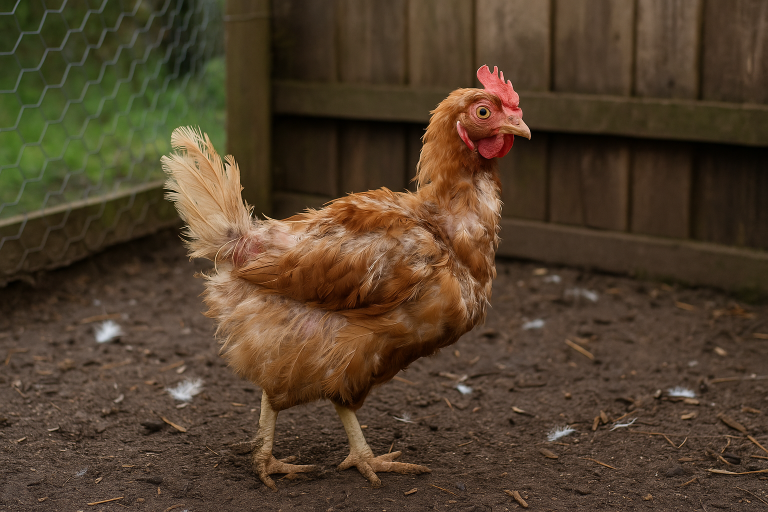Feeding Chickens In Winter: What To Know And What To Change
When the cold weather sets in, your chickens’ diet needs a few tweaks. With less foraging, longer nights and more energy used to stay warm, winter feeding is all about keeping hens well-fuelled, healthy and comfortable. I’ve found even small changes can make a big difference in how they cope through the colder months.
Here’s what I recommend from personal experience on feeding chickens through the British winter.
Why chickens need more food in winter
In winter, chickens burn more calories to maintain their body heat, especially overnight. They’re also not roaming as much, so they rely entirely on you to meet their nutritional needs. Even hens that stop laying still need proper feed to keep condition and resist illness.
We’ve noticed our birds go through noticeably more layers’ pellets once the temperature drops, particularly during frosty spells when the ground’s too hard to scratch for anything useful.
Stick with a complete layers’ pellet
Despite the season, your hens’ core diet should still be a balanced layers’ pellet. It provides everything they need, including protein, vitamins, and minerals, and it’s more reliable than trying to balance scratch grains or home mixes.
It can be tempting to bulk them up on corn, but relying too much on it means you’re skimping on essentials. Let the pellets do the heavy lifting and treat other things as extras.
Add scratch or corn in the afternoon
That said, a small handful of mixed corn or whole grain wheat in the late afternoon is useful in winter. It takes longer to digest than pellets, helping your hens stay warmer overnight. We always offer ours just before dusk — that way they still prioritise their pellets during the day.
Just don’t overdo it. Too much grain can dilute protein levels and affect egg production or feather health.
Add protein if they’re finishing a moult
If your hens are still re-growing feathers into early winter, they’ll need extra protein to finish the job. I’ve had late moulters before and found they perk up quickly with a few high-protein extras. However, it’s easy to go overboard, so keep portions small, and always stick to clean, unseasoned foods.
Don’t forget grit
In winter, when the ground is frozen or covered, chickens can’t pick up grit naturally. That means they’ll need a constant supply in a separate pot. Without it, they can’t properly grind food in their crop — especially when they’re eating more hard grains or dry feed.
I make sure grit and oyster shell are always topped up in winter, even if they don’t touch it every day.
Keep their water from freezing
Chickens won’t eat well if they can’t drink. And once that drinker ices over, they’re in trouble. I check ours two or three times a day in really cold weather and rotate spare drinkers so we’re not constantly thawing the same one. Some keepers use ping-pong balls or heated bases, but honestly, a spare kettle and a backup drinker are the most practical solution we’ve found. For more infromation, read How to Stop Chickens’ Water Freezing in Winter.
Winter treats: keep it simple
Chickens don’t need loads of warm treats, and too many can cause imbalance. I sometimes give ours a warm mash made with pellets and a bit of warm water or plain oats. A handful of chopped cabbage or cooked carrot can be a nice distraction when they’re cooped up. Remember that you must not feed chickens any kitchen scraps or food prepared in the kitchen,
You’ll find more ideas in our separate post on treats for chickens, if you fancy experimenting.
Final thoughts: feed early, check often
Short days mean less time to eat, so it’s best to feed early and make sure your hens are stocked up before roosting. I always do a late afternoon check to refill feeders, top up grit, and hand out a few grains.
Chickens are surprisingly hardy, but they need the right support to get through winter in good health. With a solid base diet, clean water, and a few seasonal extras, they’ll keep ticking along just fine — and come spring, they’ll be ready to start laying again.
For more seasonal feeding tips, read: Seasonal Feeding For Your Chickens
Kevin O’Hara got his first chickens back in 1972. A backyard chicken keeper based in Yorkshire, he created of KeepingChickens.uk back in 2012. With years of hands-on experience, he shares practical, UK-specific advice to help others care for happy, healthy hens. Learn more about Kevin on the author page.






